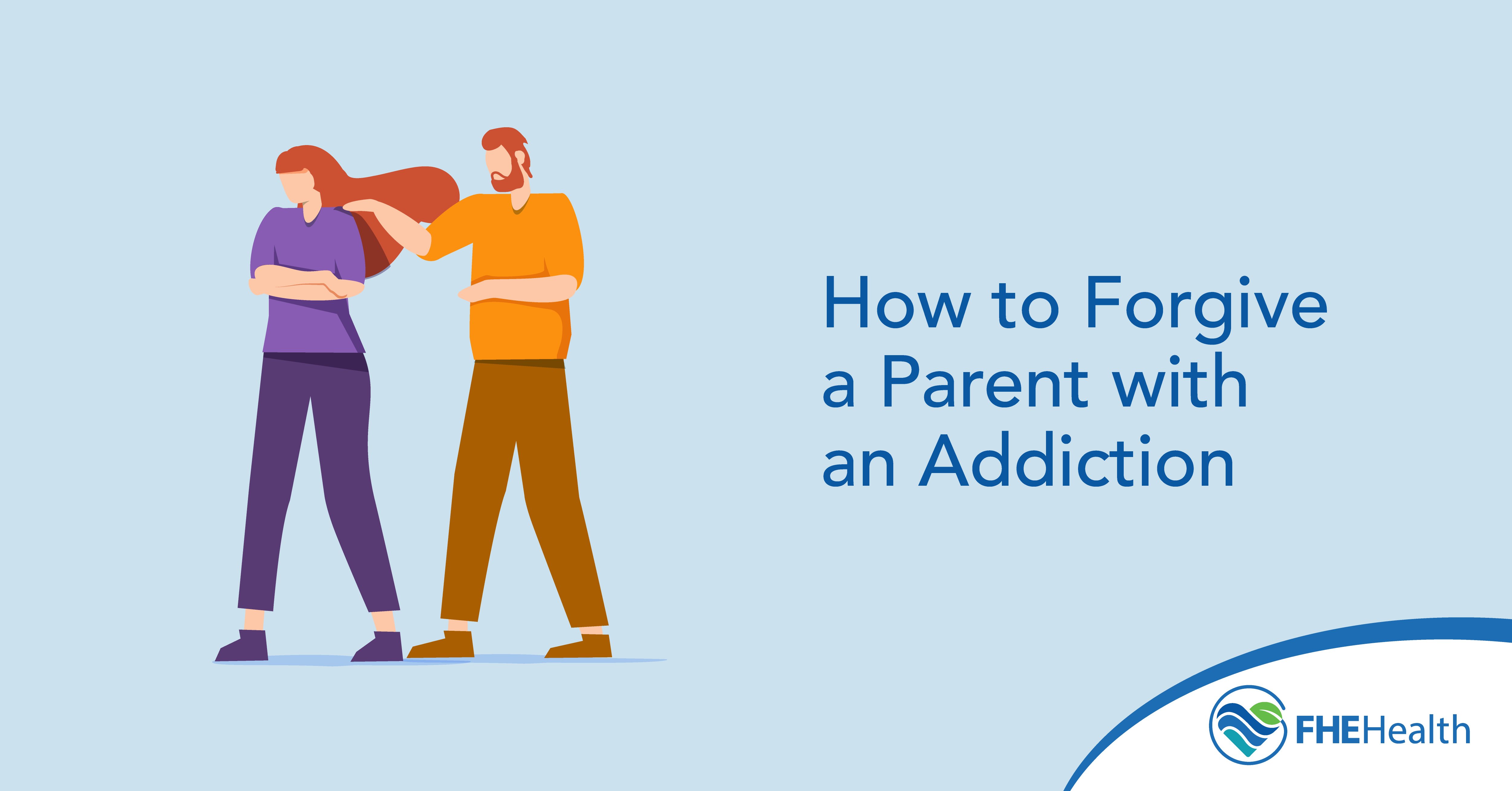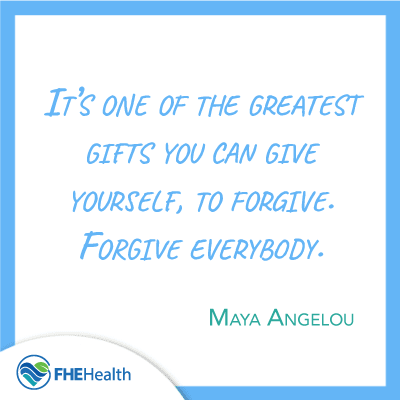
Loving an addict is difficult at any age, but being the child of a drug-addicted parent can be downright devastating. Addiction is a disease that affects the entire family, and when you’re a kid in a household controlled by drugs, you’re often faced with situations nobody should ever have to deal with. Maybe you missed out on opportunities other kids had simply because all the money went to buy drugs or alcohol, or maybe you were embarrassed by your parent’s behavior. Chances are good you wound up taking care of your parent while they were drunk, high, or detoxing, and you likely had to fend for yourself at an early age. You may even have been neglected or abused. Most likely, your parent was simply absent.
All the experiences you had as a child of drug-addicted parents likely had a big impact on who you are today and how you see the world. You probably have mixed emotions and vivid memories about your parent that include feelings of anger, resentment, and betrayal. But holding onto those powerful emotions can leave you struggling with anxiety, depression, fea,r and perhaps even your own addiction issues. If so, forgiving your parent could help you overcome the painful memories and toxic resentment that are keeping you from achieving what you want in life. Here’s how to forgive an addict in six steps.
1. Don’t Wait for An Apology
Denial is one of the most common and most hurtful characteristics of someone who’s struggling with drug addiction. Many children of addicts make the mistake of waiting their whole lives for an apology from their parents. Unfortunately, apologizing to a child for addiction is one action many parents often fail to take, simply because they don’t take responsibility for their actions.
If your parent does apologize, chances are good you’ll be left feeling less than satisfied with what they have to say. They may not fully understand how you’ve been impacted by their addiction or even remember the events permanently etched in your memory. They could underestimate how their addiction affected them or even blame the drugs for all their shortcomings as a parent. That’s likely to leave you feeling even more hurt and resentful toward them.
Learning how to forgive your parent starts with releasing any hopes you have of receiving an apology. Choosing to forgive your drug-addicted parent means making a conscious choice to let go of the negative thoughts and feelings you’ve been living with. Remember, it’s not about them — it’s about you and your future. You’re the one who’s been carrying the resentment. Forgiving them allows you to put that burden down.
2. Acknowledge Your Own Experience
While it’s important not to let your healing hinge on your parent’s apology, it’s still valuable to come to terms with your feelings. Depending on your situation, this might mean working through grief, anger, anxiety, or even embarrassment to get to a wholehearted place of forgiveness.
Taking the time to acknowledge your experience ensures you don’t rush into forgiveness before you’re truly ready. You might need to work through your feelings in a journal, with a therapist, through a creative hobby, or in a support group for people with relatives struggling with addiction. No matter your method, be patient with yourself; the path to forgiveness can be as long and winding as the path to recovery.
3. Learn the Difference Between Forgiveness and Forgetting
Forgiving a person for treating you badly doesn’t mean you accept the fact that they were, and might still be, abusive, selfish, and hurtful toward you. Contrary to how it may seem, saying you forgive your addicted parent is very different from accepting their destructive behavior or denying the impact their addiction had, and continues to have, on you.
Making peace with the fact that they struggled with the disease of addiction simply means you choose to let go of the anger and resentment you’ve been living with — it doesn’t mean you pretend their drug abuse didn’t affect you. It also doesn’t mean you should suddenly expect that your parent’s behavior has changed for the better or that you’ll now be able to have a healthy relationship with them.
Remember, forgiveness is a deeply personal choice that often involves processing painful feelings so you can let go of the invisible chains holding you back from your health, wellness, and prosperity.
4. Understand Addiction — and Parenting
Part of learning how to forgive an addict is trying to see things from their perspective. Substance abuse can negatively affect a person’s judgment, memory, decision-making abilities, and impulse control. Plus, it may develop alongside mental health disorders such as PTSD or depression. Additionally, parenting in itself is a difficult undertaking and can be all the more so for a parent struggling with addiction.
Recognizing the challenges and regrets your parent has experienced doesn’t mean excusing their situation or any trauma they may have put you through. However, it can be a powerful step on the path toward forgiveness.
5. Look for the Upside
While finding something positive to say about growing up with a drug-addicted parent may seem impossible, that’s exactly what some children of addicts have been able to do.
Growing up as the child of an addicted parent can mean you didn’t have the healthy adult role models you needed at home to develop high self-esteem and didn’t understand how to deal with your emotions and become a strong, resilient adult. While that means you might have faced more challenges than your peers, it’s not a lifelong sentence to living with resentment and anger — it can actually motivate you to become a better person than your parents.
Chelsea Cameron, a young British woman raised by drug addicts, has taken forgiveness one step further by finding the positives in her parents’ addiction. In an open letter posted on her blog, she begins with “Mum and Dad, Thanks for everything, I owe you.” She extends thanks to both her parents for “teaching me that taking drugs ruins lives, breaks families apart, and gives no one a quality of life worth living.”
Cameron goes on to say, “I’ll be eternally grateful for this lesson you’ve taught me, which has a message which has stuck by me until this day and always will. I have never and will never have a desire to take harmful substances, through your example.”
6. Remember — You’re Not Alone
Addiction is more common than you might realize. A recent study by the Pew Research Center revealed that 46% of U.S. adults reported having a family member or close friend who is currently or has been addicted to drugs. The study also discovered that addiction impacted men and women equally, and there were no notable differences in addiction rates based on political affiliations or ethnicity.
An estimated 28 million Americans grew up with addicted parents, and many of these children of drug addicts have found the support they need by sharing their experiences with others who’ve “been there.” Groups such as Nar-Anon, a worldwide 12-step fellowship program for families and friends of addicts, hold meetings throughout the country, and some locations even have Narateen groups for young people.
Here at FHE Health, we know addiction is a disease that impacts the whole family — that’s why we offer a variety of programs and services for families of addicts, including family psychotherapy and family dynamics classes.
Need Help Learning How to Forgive an Addict? We’re Here for You
If you’re the child of a drug addict who needs treatment support, contact us today or complete our online contact form. Our team of compassionate, experienced addiction experts is always available to talk, 24 hours a day, 7 days a week.









